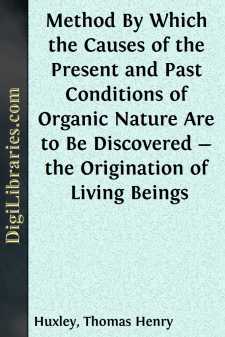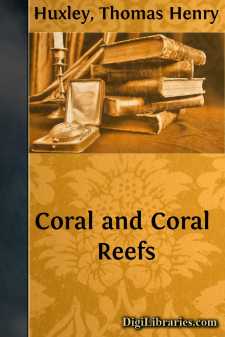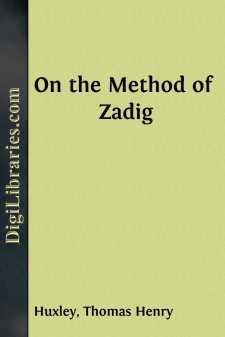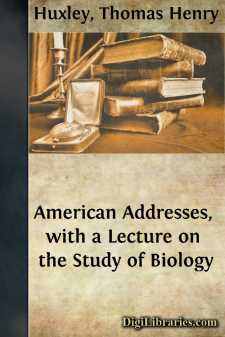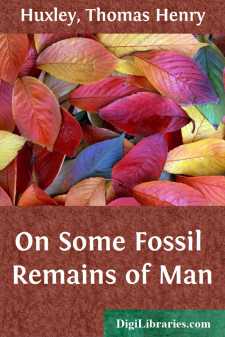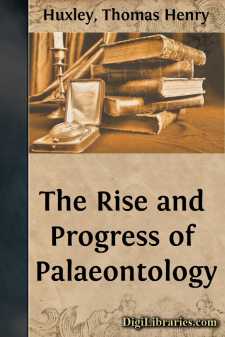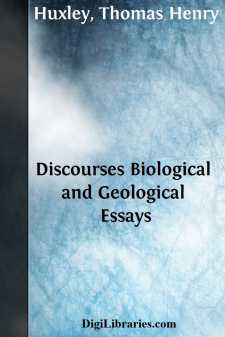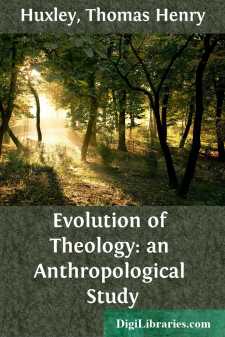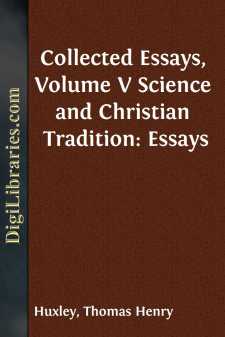Categories
- Antiques & Collectibles 13
- Architecture 36
- Art 48
- Bibles 22
- Biography & Autobiography 813
- Body, Mind & Spirit 142
- Business & Economics 28
- Children's Books 16
- Children's Fiction 13
- Computers 4
- Cooking 94
- Crafts & Hobbies 4
- Drama 346
- Education 46
- Family & Relationships 57
- Fiction 11829
- Games 19
- Gardening 17
- Health & Fitness 34
- History 1377
- House & Home 1
- Humor 147
- Juvenile Fiction 1873
- Juvenile Nonfiction 202
- Language Arts & Disciplines 88
- Law 16
- Literary Collections 686
- Literary Criticism 179
- Mathematics 13
- Medical 41
- Music 40
- Nature 179
- Non-Classifiable 1768
- Performing Arts 7
- Periodicals 1453
- Philosophy 64
- Photography 2
- Poetry 896
- Political Science 203
- Psychology 42
- Reference 154
- Religion 513
- Science 126
- Self-Help 84
- Social Science 81
- Sports & Recreation 34
- Study Aids 3
- Technology & Engineering 59
- Transportation 23
- Travel 463
- True Crime 29
Method By Which the Causes of the Present and Past Conditions of Organic Nature Are to Be Discovered - the Origination of Living Beings
Description:
Excerpt
In the two preceding lectures I have endeavoured to indicate to you the extent of the subject-matter of the inquiry upon which we are engaged; and now, having thus acquired some conception of the Past and Present phenomena of Organic Nature, I must now turn to that which constitutes the great problem which we have set before ourselves;—I mean, the question of what knowledge we have of the causes of these phenomena of organic nature, and how such knowledge is obtainable.
Here, on the threshold of the inquiry, an objection meets us. There are in the world a number of extremely worthy, well-meaning persons, whose judgments and opinions are entitled to the utmost respect on account of their sincerity, who are of opinion that Vital Phenomena, and especially all questions relating to the origin of vital phenomena, are questions quite apart from the ordinary run of inquiry, and are, by their very nature, placed out of our reach. They say that all these phenomena originated miraculously, or in some way totally different from the ordinary course of nature, and that therefore they conceive it to be futile, not to say presumptuous, to attempt to inquire into them.
To such sincere and earnest persons, I would only say, that a question of this kind is not to be shelved upon theoretical or speculative grounds. You may remember the story of the Sophist who demonstrated to Diogenes in the most complete and satisfactory manner that he could not walk; that, in fact, all motion was an impossibility; and that Diogenes refuted him by simply getting up and walking round his tub. So, in the same way, the man of science replies to objections of this kind, by simply getting up and walking onward, and showing what science has done and is doing—by pointing to that immense mass of facts which have been ascertained and systematized under the forms of the great doctrines of Morphology, of Development, of Distribution, and the like. He sees an enormous mass of facts and laws relating to organic beings, which stand on the same good sound foundation as every other natural law; and therefore, with this mass of facts and laws before us, therefore, seeing that, as far as organic matters have hitherto been accessible and studied, they have shown themselves capable of yielding to scientific investigation, we may accept this as proof that order and law reign there as well as in the rest of nature; and the man of science says nothing to objectors of this sort, but supposes that we can and shall walk to a knowledge of the origin of organic nature, in the same way that we have walked to a knowledge of the laws and principles of the inorganic world.
But there are objectors who say the same from ignorance and ill-will. To such I would reply that the objection comes ill from them, and that the real presumption, I may almost say the real blasphemy, in this matter, is in the attempt to limit that inquiry into the causes of phenomena which is the source of all human blessings, and from which has sprung all human prosperity and progress; for, after all, we can accomplish comparatively little; the limited range of our own faculties bounds us on every side,—the field of our powers of observation is small enough, and he who endeavours to narrow the sphere of our inquiries is only pursuing a course that is likely to produce the greatest harm to his fellow-men.
But now, assuming, as we all do, I hope, that these phenomena are properly accessible to inquiry, and setting out upon our search into the causes of the phenomena of organic nature, or, at any rate, setting out to discover how much we at present know upon these abstruse matters, the question arises as to what is to be our course of proceeding, and what method we must lay down for our guidance....


